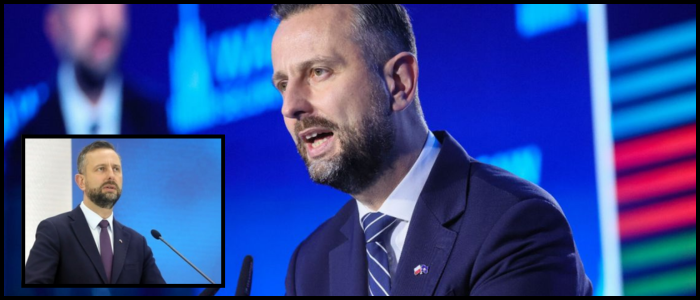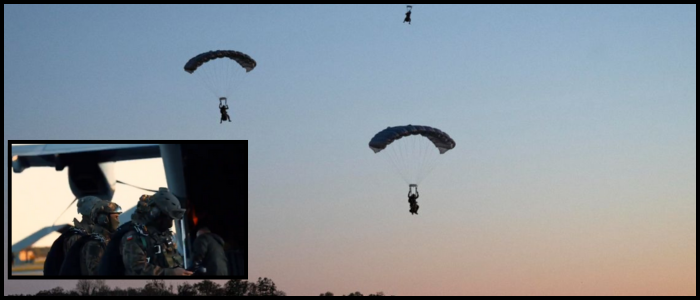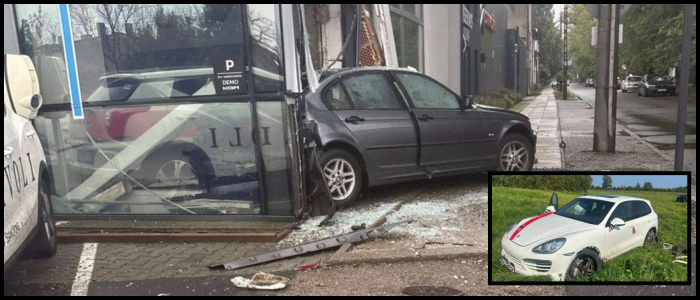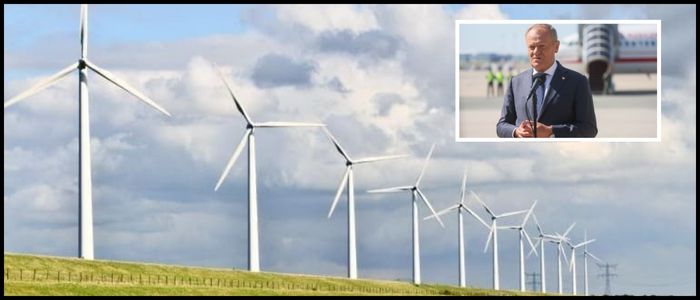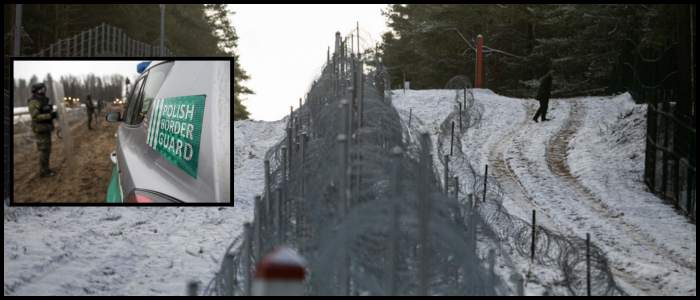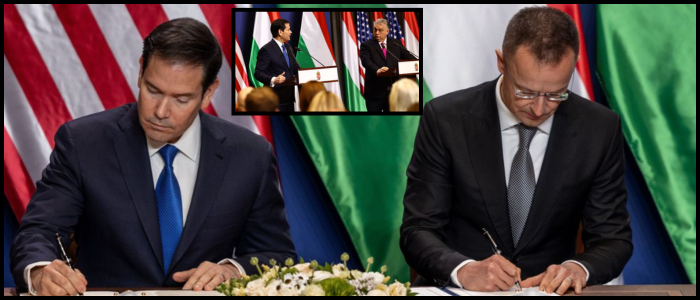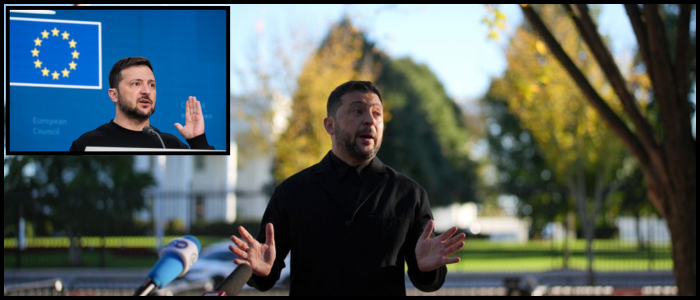Home/
top/
Central Europe's Growth Slows as Poland Faces Budget Strain
top
Central Europe's Growth Slows as Poland Faces Budget Strain
Economic development within Central and Eastern Europe persists, but the process of catching up to Western Europe shows a decelerating tendency. Perhaps the most telling is the most recent data for (AIC) Actual Individual Consumption, which is a better measure than GDP of the income people need to be comfortable on a day-to-day basis.
By Oskar Malec | Last Updated: 25 Jun 2025
These countries in Central Europe, the Baltics, and the Balkans remain below the EU average concerning AIC per capita at purchasing power standards in 2024. Though growth persists, the turbocharge it was experiencing in the early 2010s has stalled.
AIC increased over the last year, in Poland from 83% to 84% of the EU average, but remains below its 2020-2021 peak of 86%. The Czech Republic also follows a similar pattern, up two percentage points to 82%, well off its 2020 peak of 90%. Hungary and Slovakia reached new highs, but both only registered modest gains of three percentage points in five years.
That makes Hungary now the lowest in the EU, below Bulgaria, though it was ahead of Poland in rank in 2008. Others above Poland now are Malta, Slovenia, Portugal, and Romania.
Romania has made the biggest stride, jumping from 57% to 88% of the EU average in only a decade. Its per capita consumption now overtakes 10 other EU countries and is close to that of Spain, while Romanians are eating at over 90% of the rate of Italy.
Here are three market themes to follow in the second quarter of 2020 Prices, Rate Cuts, and Consumer Sentiment
Financial markets are surprisingly steady, despite the war threats between Israel and Iran. But fuel prices have responded, particularly the cost of diesel, for which geopolitical disruptions are more significant. The price of Brent crude has risen by several dollars a barrel.
Orlen hiked diesel prices in Poland by 0.30 zÅ‚oty (€0.07) per liter, equivalent to a weekly 6% spike. The price of petrol increased by 0.12 zÅ‚oty (€0.028).
These rises in gasoline prices are influencing decisions about monetary policy. The Monetary Policy Council (MPC) scheduled to cut rates in July in Poland, but this is now less certain. Geopolitical risk is increasing and reducing the space for easing, Cezary Kochalski, a council member who favored a 25 basis point cut said at the time.
Kochalski underscored that forecasts of inflation had been looking better but that an increase in the price of energy could upend that development. He still supports a tentative rate cut but now, he says, the situation has become murkier.
His tenure ends in December, and his successor will be selected by Poland’s president, introducing a new dynamic to the MPC’s stance ahead of 2026 budget discussions.
Economic statistics, too, offer a mixed view. May’s wage gain slowed to 8.4% from April’s surprise 9.3%, and employment shrank by 13,500 jobs. Construction output was down 2.9 percent and industrial production rose 3.9 percent, below expectations.
There were numbers here that could have encouraged rate cuts, but now geopolitical issues are in charge.
But consumer sentiment is getting better. In recent survey results, the share of people who feel financially worse off than a year ago is just 25.3%, the lowest since August 2021.
The number of Poles who have a negative opinion of Poland’s economy is also falling, having reached a high of 85% in 2022, with 47% now having a negative opinion. Only 6 percent now express concern about inflation while 40 percent expect it to dip. A record 11.2% expect to be able to save in the year ahead.
Poland’s Deficit: Tops €23 Billion With Outlook More Stable
Poland government budget deficit exceeded 100 billion zÅ‚oty (€23.1 billion) at the end of May after an increase of €3.91 billion was recorded for that month alone.
The shortfall over 12 months stood at 61.5 billion euros. A significant portion of the increase is attributed to new accounting methods brought in from 2024 for local poland government finances.
Making up for these changes, the deficit in 2024, “would turn out more than €14.6bn [improved]: just €10.3bn”—an improvement from €12.25bn at the same period in April last year. The rolling 12-month stripped deficit has held steady at around €46.2bn.
The revenue trends are getting better. Revenues from VAT increased by 19.7% year-on-year, excise duties by 6.3%, personal income tax by 13.9%, and corporate income tax by 4.5%." Spending increased by 5.6% while the annual debt servicing costs fell by 9.3%. This drop, despite higher total debt, is a result of somewhat lower domestic interest rates.
While the headline deficit is large, underlying figures indicate a degree of fiscal stability. Higher tax revenue, and cheaper servicing costs for climbing debt, offer a buffer to public finances.
Members of the Bloc Are Increasingly Concerned About Russia’s Economy
At the same time, economic uncertainty is rising in Russia. The Kremlin has openly called on the Central Bank to do more, with President Vladimir Putin lamenting about growth and investment.
Those tensions emerged after the central bank’s one-point rate cut was criticized as insufficient. The economic development minister, Maxim Reshetnikov, warned of a pending recession, and top business leaders bemoaned stagnating investment and downturns in output.
Sberbank, meanwhile, had reported no big new projects this year, and Severstal said steel production had fallen by 14 per cent.
Russia’s keystone rate is 20%, a tick from the earlier 21%, and inflation of 10%. Concerned about weak currency confidence and sticky expectations, Central Bank Governor Elvira Nabiullina warned against cutting rates prematurely, which could kindle inflation.
Deeper problems remain, though, that reach beyond monetary policy
A graying work force, mandatory military service and sanctions all continue to weigh on an economy in dire need of a kick-start. As recession risks mount and complaints rise, Russia’s leaders are in a more complicated economic bind.


